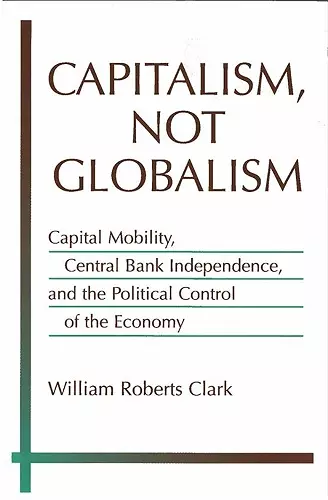Capitalism, Not Globalism
Capital Mobility, Central Bank Independence, and the Political Control of the Economy
Format:Paperback
Publisher:The University of Michigan Press
Published:30th Sep '05
Currently unavailable, and unfortunately no date known when it will be back

An original, empirically supported explanation of the domestic consequences of recent changes in the global economy While much has been made of recent changes in the international economy, the mechanisms by which politicians control the economy have not fundamentally changed in the postwar period. In Capitalism, Not Globalism, William Roberts Clark challenges both traditional and revisionist globalization theorists with his assertion that increased financial integration has led to neither a widening nor a narrowing of partisan differences in macroeconomic policies and outcomes. Clark shows that the absence of partisan differences is a long-standing feature of democratic capitalist societies, arising from policymakers' attempts to use the economy to guarantee their political survival. Structural changes such as increased capital mobility and central bank independence do not necessarily diminish politicians' ability to control the economy, but they do shape the range of available strategies. In a world of highly mobile capital, politicians use monetary policy to create macroeconomic expansions prior to elections only if the exchange rate is flexible and the central bank is subservient. But they use fiscal policy to induce favorable business cycles when the exchange rate is fixed or the central bank is independent. By considering how capital mobility, the exchange rate regime, and central bank independence limit the range of incentives available to policymakers, Clark shows that macroeconomic policies and outcomes are tied to the electoral calendar rather than to the prevailing ideology.
ISBN: 9780472031160
Dimensions: unknown
Weight: 343g
224 pages